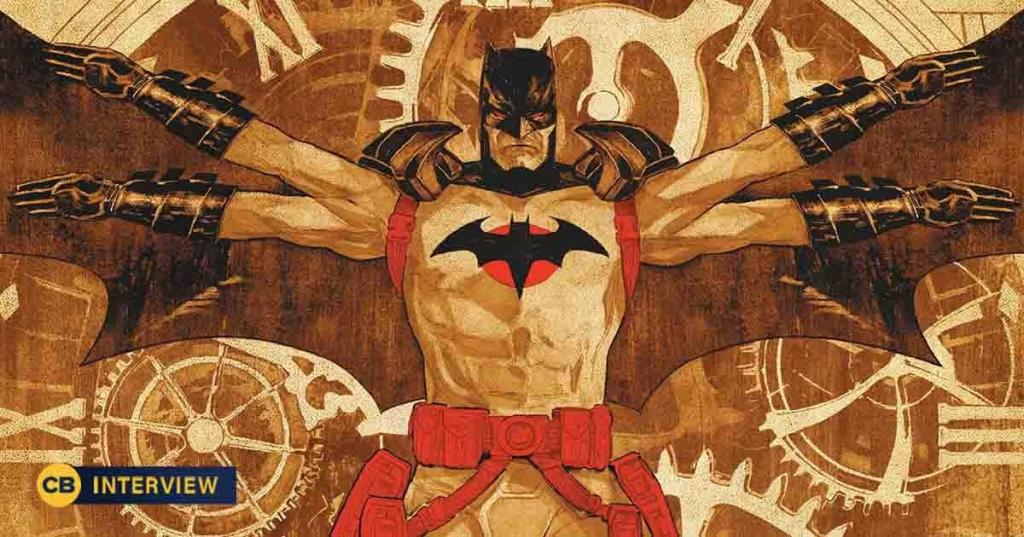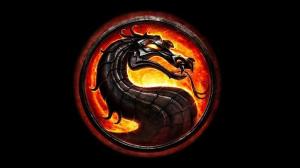DC’s Flashpoint Beyond has not only been a fascinating revisiting of the Flashpoint Universe, but as the six-issue series has unfolded, has revealed itself to be something more with the revelation of a deeper mystery in Thomas Wayne/Flashpoint Batman’s world as the Clockwork Killer targets time travelers all while Thomas tries to figure out exactly why this timeline has come back. It’s interesting timing this return, just in time for Dark Crisis on Infinite Earths, making the mystery even bigger for DC fans.
Videos by ComicBook.com
Recently, Flashpoint Beyond #4 threw a major curveball for readers with the revelation that Martha Wayne, aka Flashpoint’s Joker, isn’t dead and is, in fact, the mysterious Clockwork Killer with clearly a much bigger role to play as Flashpoint Beyond heads into its final issues. In an interview with ComicBook.com, series writers Jeremy Adams, Geoff Johns, and Tim Sheridan talk about how that Martha reveal shakes things up heading into Flashpoint Beyond #5, but more than that, the deeply human and emotional story being told and the bigger connections to the DC Universe.
Nicole Drum, ComicBook.com: There are two issues left to Flashpoint Beyond. Y’all just blew things up in this crazy way. How bananas are we going to get going into issue five?
Geoff Johns: Pretty crazy. I think that three of us separately are a little bit nuts. So together we really… I have to say though, it’s through the process. I think my favorite thing about where the story is going, especially I have my five opened up right here. Just looking at it again. And it’s all the stuff we talked about early on as what the story really is, what it’s really exploring, what the truth is behind all the mysteries with Bruce Wayne and what his role is in this. And what Martha’s role has been with Thomas and what Thomas is going to have to face issue. Issue four is the first time we actually get to step through that door, but we don’t step through it till the end. So, issues five and six are all of that.
It’s all what Jeremy and Tim and I spoke about in the very beginnings of what is this story? Why is it personal to Bruce Wayne? How’s it going to challenge Thomas Wayne? And what are we trying to say about grief and loss and both these Batmen? So, it’s really exciting to be here, actually. I’m looking at five going, ‘I can’t wait for five to be out.’ Five has so much stuff in it. It’s crazy, actually.
Tim Sheridan: It’s interesting because the title of four is The Other Side of the Wall and that really comes into play right at the end. But then five really is sitting on the other side of the wall. It’s kind of all of those threads and all of those things that we’ve been talking about and sort of seeing them all live together next to each other. It’s going to be exciting; I think.
Jeremy Adams: It is exciting. I think what you guys were saying about grief and loss, it’s also just how it impacts other things in the DC universe or what that means outside of this book is exciting too. And one of the things I love about this just as a fan and a reader, it has the cadence and rhythm of a story that I really like where there’s some action, but it’s a bit of a slow burn. By the end of four, it just feels like this fuse has been lit. And by five it just feels like, oh gosh, oh gosh, it just starts getting faster and faster and faster and more urgent. And I think we put all those pieces in place early on with the war between the Amazons and the Atlantians and the Kryptonians. And it’s all coming to a head, even if it’s peripherally to Thomas and what he needs to do.
Johns: I’d just say for the DC fans, issue four is like Tim said, it is walking through the doorway to the other side of the wall and it literally and figuratively speaking, because we do get more into Bruce Wayne’s story in issue five and the other side of the story and start to explore that. And we’ve just been touching on it a little bit as we go in the first four issues, but issue five, it starts to take over some of the storytelling as we cross it up between the two stories of Bruce and Thomas.
Sheridan: I think if you’ve been excited and as the anticipation’s building about what’s happening with Bruce, I think issue five is going to be something to get into. Like Geoff said, it really is about all of those pieces coming together.
One of the things that you guys have touched on is about the grief and trauma of it all. But the thing that struck me about this, like a lot of superhero stories do live in grief and trauma. But there’s also a lot of hope here that I did not expect. And I didn’t expect it to come from Thomas. Walk me through why, in a real way, he’s almost an optimistic character in some sense.
Johns: Well, I think if you don’t have many optimism or hope, then I don’t think you’re going to be as active as Bruce or Thomas is. Right. Even as dark as Batman gets, the reason he’s doing this is he helps create a better outcome for others. And that’s why he does it. Otherwise… Without hope, and without some, I don’t know.
It sounds kind of over simplistic, I think, when you talk in terms of superheroes often or DC comics, but one of the reasons I think people gravitate towards the DC universe in comics, and I certainly have, is that the characters do have this hope and optimism and they inspire. And I think even when we’re faced with grief, and I think this is something Tim pointed out for me, even when we’re faced with grief whether it’s Barry Allen or Thomas Wayne, or us as people, or Bruce, there’s a way to process it and get through to the other side, even though it’s really difficult. The real truth is that we don’t have any other choice as human beings but to process grief and incorporate it and get through to the other side and try and take what we can, that can be good from grief.
And, and it’s okay to find good in grief because that’s the reality. It’s like everyone would rather things go back in time and change things, but we can’t, right? So, we’ve got to face it and we’ve got to move on, and we’ve got to, I think it really takes a lot to say, “Okay, how do we take this awful thing that’s happened or this loss that we’ve had and find something good out of it?” Because you feel guilty for finding good out of it, right? You feel like you should always have immense pain over this thing that happened. And the truth is we shouldn’t, we should process it in the time we need, but ultimately find hope and something good to come from it, even if it’s the smallest things, but I think that’s the best anyone can do with grief and loss.
Sheridan: Yeah. Move beyond it, right? And Nicole, I love talking to you about this stuff. This is so, so cool because that is, like everything Geoff said. Yes, obviously we all love talking about the stuff in the room, but that’s essential to this. There’s an idea that we can destroy our grief or trauma, and we can get it out of our lives and correct it. But there’s another way and that’s learning to live with it and learning to move on.
Johns: Yeah. I think Tim pointed out for me early on, we were talking about it. You said like the original Flashpoint was all about that. I’m like, you’re right. It was. I didn’t know how conscious I was of it. I was conscious enough, but not as conscious. And this is like another step beyond. Addressing grief is, rather than just rushing past it or forgetting, or just trying to change it all, is incorporation and facing it and learning, what do we take from it? And trying to be okay with that. And it’s hard to do. It’s really hard to do. For anyone that’s faced it.
Sheridan: Well, you’ve got two characters like Thomas and Bruce who have both, are both borne out of this trauma and grief and, two sides of that wall. Getting to explore what we’re talking about with those characters has been just incredible, right?
Adams: Yeah. I think especially Thomas, just having gone through Flashpoint originally and the hope of a better tomorrow for his dead child is such a motivator. And to wake up in this universe again and to already have the knowledge that he did change it before, and he did see his son and his son is this amazing guy. And I feel like that’s even a greater… One of the things that’s driving him in this series originally is the fact that he knows it’s true, this shouldn’t be happening. And so, he wants to bring that back. That’s the hope he has, it’s this real dark hope, at the beginning, because it’s like nothing matters except I’m going to change this back. And it’s almost heroic. If you know that the world should be better and I help fix it, but now I’m back in this hell, that’s the thing we’re really playing with and getting to a point where, like you said, what do you do with that grief? Do you go back and try to change it again? What do you do? I think those are the questions we’re going to answer.
Sheridan: And we could write a really interesting stage play between two characters talking about this very thing, but we’re talking about the Omniverse and Hypertime and a huge group of characters who are affected by trauma and grief and other things, and joy and wonder in all sorts of different ways. And so, it’s not just about trauma and grief. I mean, that’s the joy of getting to play with these toys. There’s also great opportunity for great fun.
Truly this is such a much bigger thing and you guys have layered in a lot of different things. What should people be preparing themselves for as we head into five?
Johns: I think that how this connects to the DCU proper in a much bigger way for Batman and Bruce Wayne and the secret of what the Flashpoint Beyond is, why it was created, what the stakes are. One of my favorite scenes is between one of the Time Masters and one of the JSA members that’s up front, which is a really fun scene that introduces conceptually the connectivity between Dark Crisis and Flashpoint Beyond in, I think, a really fun way.
Adams: When you were talking about scope, one of the things I just, all credit to Geoff, Tim and I are always marveling at the depth of DC knowledge that you pulled into certain things that does give us this grand canvas to tell the story. And so, as we lead into five, for me, it is that just like I said, that rhythm, that picks up almost to a frenetic pace. So that by the end, you’re just going to be whipping through those pages because you’re going to want to see how does this end, what does this mean? What does this mean going forward? And honestly, it’s one of those things that, even if it’s something that you addressed right away, or is it something you addressed later on? What’s kind of cool about Flashpoint Beyond is how many years ago was Flashpoint and being able to pick up the story here is kind of a neat thing. And I think this provides a lot more storytelling fodder for the DC universe going forward
Johns: I agree. I think what issue five does in particular too, is that it does kind of take a look at all the big universe encompassing events in DC and actually shows you that they kind of operate both in the Omniverse and in Hypertime. And if you look at all of them, you could see which ones operate in what. And the Omniverse, everyone’s aware of these huge things. And in Hypertime, some of them happen and no-one knows because it’s all about rewriting time, right? So, it’s like times change. And ultimately only the people that were involved with are aware of it, in the Omniverse, it can be much bigger and much, much stranger in the public eye. So, there’s something cool and mysterious about the Hypertime stories. And when you see that, I think people will reflect back on all these DC events since the very first crisis and see that they do kind of play in these two areas. And what that means for the future, I think is really exciting.
Sheridan: Also get ready to spend a little more time with Batman and the joker. You probably got that from the end of four.
Flashpoint Beyond #5, written by Geoff Johns, Tim Sheridan, and Jeremy Adams with art by Xermanico and Mikel Janin, goes on sale September 6th.









